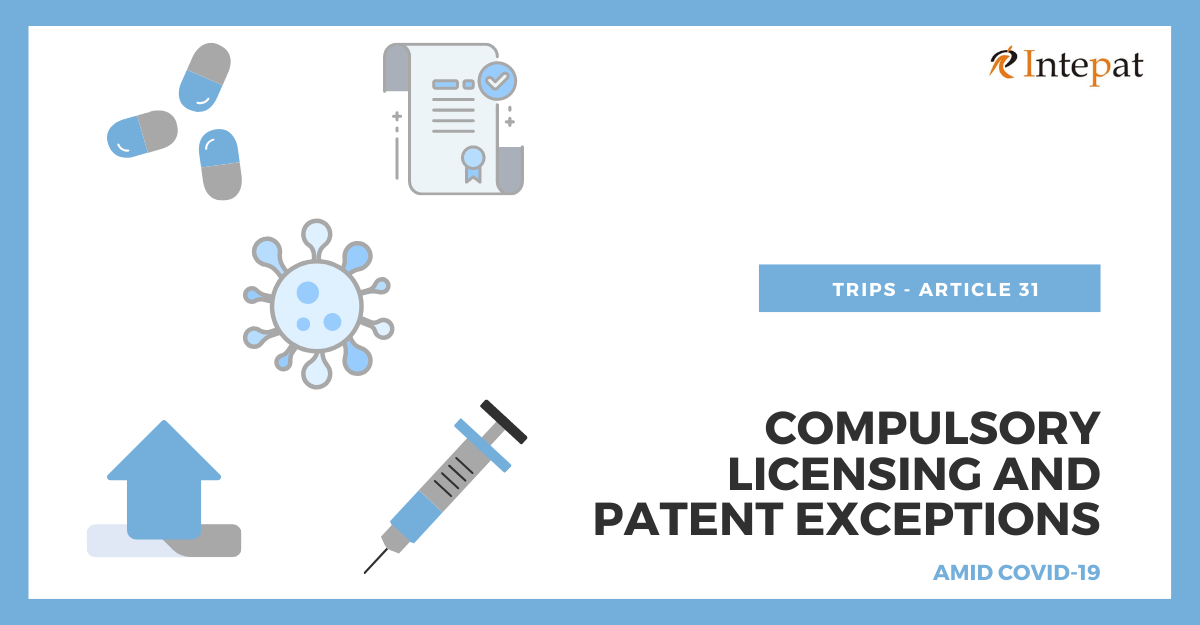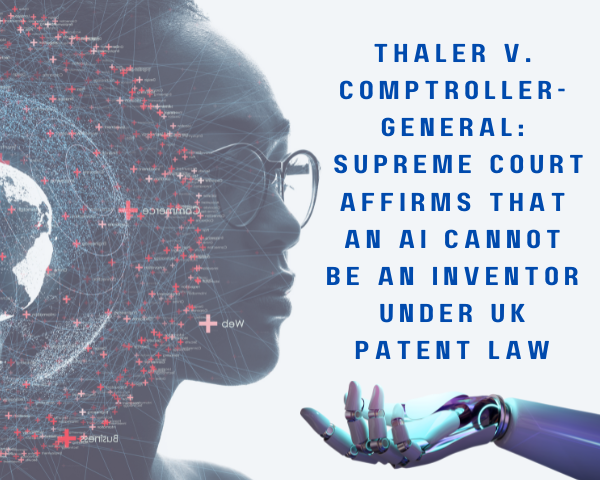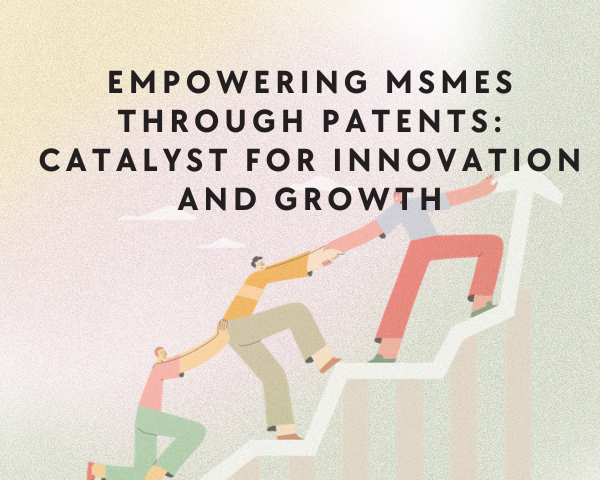With covid-19 vaccines rolling out worldwide, there seems to be some relief from the deadly coronavirus, but the pandemic is far from over. The vaccines developed by pharmaceutical companies are protected under the Trade-Related Aspects of Intellectual Property Rights Agreement (TRIPS). The patent rights held by innovators, when unshared with manufacturers, essentially are artificially constricting the supply of the much-needed vaccine. In light of these concerns, India and South Africa proposed a temporary waiver of patent obligations under the TRIPS Agreement before the World Trade Organization (WTO). Developed countries, like the US, EU, UK, and Canada, however, vehemently opposed such a waiver. The flexibility protocols in the TRIPS Agreement for public health emergencies like the compulsory licensing were among the reasons behind the opposition to the waiver proposal. Pharmaceutical companies are also under pressure to waive off intellectual property rights, which they would wish to enforce under normal circumstances, to facilitate vaccine distribution.
Compulsory Licensing, flexibility in patent protection provides for the government to allow a third party to undertake the production of a patented product or use a patented process without the patent holder’s prior consent in certain circumstances. Though this flexibility was present in the TRIPS Agreement, it was the 2001 Doha Ministerial Declaration on TRIPS and Public Health that assured governments that the flexibilities could be used and provided that the TRIPS Agreement “should not prevent members from taking measures to protect public health.”
Compulsory Licensing in India
Chapter XVI of the Indian Patent Act, 1970 (‘the Act’) deals with compulsory licensing. In particular, section 84 and Section 92 lay down the requisite conditions for the grant of a compulsory license. Under Section 84, an application for grant of a compulsory license can be made only after three years from the date of grant of that patent on the grounds of unmet demand, excessive pricing, or lack of local manufacturing. Section 92, on the other hand, provides that in circumstances of extreme urgency, national emergency, or in case of public non-commercial use, a compulsory license can be granted to any interested person. Such a grant requires a declaration made by the government to notify the necessity of granting compulsory license concerning the particular drug. Furthermore, the detailed procedure laid down under Section 87 for the grant of compulsory license needs not to be followed in epidemics like the Covid-19 to expedite the process and facilitate access to the vaccine.
Section 100(5) of the Act also provides for the government to authorize the use of any patents or applications pending grant of a patent for the “purpose of government.” Therefore, upon receiving such authorization from the government, manufacturers in India will begin production of the vaccine while the royalty negotiations with the patent holder are ongoing. In case no agreement is reached in respect of the royalty, as per Section 100(3) of the Act, a reference to the High Court can be made under Section 100(6) of the Act for the Court to fix the royalty at a reasonable rate. Moreover, under Section 102, the government can even acquire the patent for a public purpose by paying a mutually agreed sum to the patentee or patent applicant.
In 2012, India became one of the first few countries that had invoked compulsory licensing when it allowed a domestic company called NATCO Pharma to manufacture and sell the generic version of a patented anti-cancer drug belonging to Bayer Corporation. The landmark judgment in Bayer Corporation v. Union of India ensured that drugs being sold in India by international pharmaceutical companies were affordable and adequately meeting the demand.
Compulsory Licensing and Covid-19
The use of the compulsory licensing flexibility to combat the Covid-19 pandemic would not be the first instance of government intervention to ensure adequate and affordable access to drugs as it was the AIDS crisis in 2001 that resulted in the Doha Declaration the TRIPS Agreement. Therefore, it is no surprise that several countries have already taken measures in this regard. While Chile and Ecuador declared the justified use of compulsory licensing to facilitate access to vaccines, drugs, diagnostics, devices, supplies, and other technologies, Canada and Germany enacted laws that allowed suspension of patent rights and compulsory licenses. Israel had also issued a compulsory patent license for Kaletra, a medicine used for treating Covid-19.
Although TRIPS provides for “adequate remuneration” to be paid to the patent holder in consonance with the economic value of authorization, there is no definition provided for “adequateness” and “economic value” of authorization. Moreover, though granting compulsory licensing to domestic manufacturers would be an economical way to produce the vaccines or any other drug for covid-19 treatment, it is essential to consider that developing and least developed countries may not have the requisite infrastructure to manufacture, store, or transport such vaccines and drugs.
Patent Waiver and Covid-19.
A patent waiver refers to the waiving off of rights arising in an invention. The much-opposed proposal in WTO seeking a temporary waiver of Sections 1, 4, 5, and 7 of Part II of the TRIPS Agreement related to copyright, patent, trade secrets, protection of undisclosed information, and industrial designs in Covid-19 technologies is yet to reach its conclusion. The patent waiver envisioned in the proposal has actually been achieved earlier for the polio vaccine in 1955 amidst the polio epidemic. When asked who owns the vaccine, Jonas Salk, the polio vaccine developer, said, “Well, the people I would say. There is no patent. Could you patent the sun?”. Thereafter, Israel produced the vaccine locally without a patent and could eradicate polio. Therefore, based on the inadequateness of the compulsory licensing regime in this pandemic, it appears that a temporary patent waiver on Covid-19 vaccines would be a viable means to ensure equitable accessibility. Though the waiver would mean that the vaccine developers do not get compensated, such an action can be justified as a way to get out of the pandemic.
Conclusion
The crisis is far from over as we are now faced with ensuring timely and affordable access to vaccines, giving rise to striking a balance between public health and private rights over intellectual property. Furthermore, while there exists a moral obligation to make Covid-19 vaccines and drugs accessible, any action in this regard should also consider the long-term effects on innovation in the healthcare sector.




